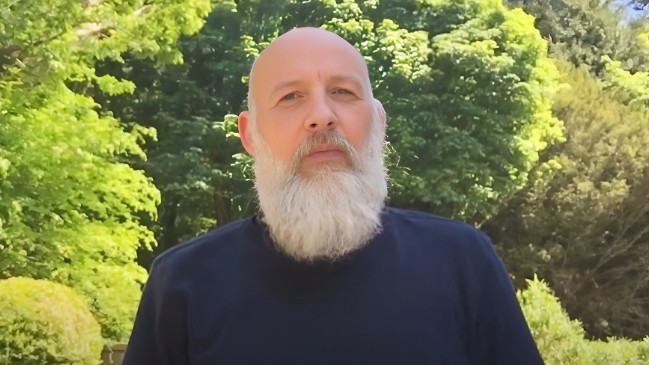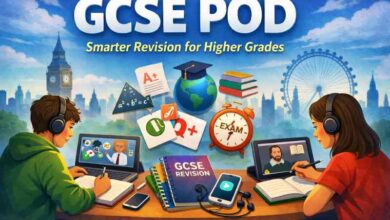Greg Bottrill: Revolutionising Early Childhood Education Through the Power of Play

Greg Bottrill is a name that has become synonymous with innovation, advocacy, and transformation in the field of early childhood education. An author, consultant, and practitioner with a passionate dedication to children’s learning, Bottrill has spent years championing the rights of children to learn through play. His unique approach to education not only challenges traditional classroom models but also offers a fresh and compelling vision of what meaningful education should look like in the early years.
Early Life and Educational Philosophy
Greg Bottrill began his journey in education as a teacher, where he quickly became disenchanted with the rigid structures and outcomes-driven frameworks that dominated classrooms. His experiences led him to question the very foundations of early education, particularly the increasing marginalisation of play in favour of formal instruction. Bottrill’s philosophy is built on the belief that children are naturally curious, imaginative, and capable of deep learning when they are given the freedom to explore.
Rather than focusing on assessment and standardised teaching, Bottrill advocates for a pedagogy that values wonder, magic, and joyful discovery. His work underscores the importance of listening to children, respecting their voices, and embracing the spontaneity of their interests. He often describes education as something that should be done “with children, not to them.”
Pioneering Work and Books
One of Greg Bottrill’s most influential contributions is his book Can I Go And Play Now?, which quickly became a seminal text for early years educators. In this book, Bottrill presents a powerful argument for the centrality of play in children’s development. He calls for a return to child-centred learning, where play is not merely a break from learning but the very essence of it.
The book is both a critique of the current education system and a practical guide, filled with anecdotes, strategies, and frameworks that educators can use to transform their practice. Bottrill’s subsequent works, including School and the Magic of Children and Love Letters to Play, further develop his ideas and continue to inspire teachers across the UK and beyond.
Key Initiatives and Concepts
Greg Bottrill’s influence extends far beyond his writing. He has developed several groundbreaking educational models and tools designed to bring his philosophy to life in classrooms. These include:
The Drawing Club
A creative storytelling and drawing initiative aimed at nurturing imagination and narrative thinking. Children are invited into a world of characters and adventures, where they can express their ideas through art and story.
The Message Centre
This concept revolves around communication, where children create and exchange written messages, notes, or symbolic representations. The Message Centre supports literacy while maintaining a playful and meaningful context.
Adventure Island
An imaginative role-play experience that transforms classroom spaces into exploratory zones. Children engage in problem-solving, cooperation, and inquiry-based learning as they “visit” Adventure Island.
The Curious Quests
Inspired by children’s natural inquisitiveness, Curious Quests are open-ended challenges or journeys that foster critical thinking, creativity, and engagement with the wider world.
Each of these initiatives reflects Bottrill’s unwavering belief in the magic of childhood and the power of play to unlock potential.
The Quest: A Research Project
One of Greg Bottrill’s most ambitious undertakings is The Quest, a long-term observational study of children’s play. Collaborating with hundreds of educators, Bottrill set out to identify and categorise different archetypes of play behaviours. These include:
- Adventurers: Children who love physical movement and exploration.
- Dreamers: Those who drift into imaginary worlds and scenarios.
- Inventors: Builders and problem-solvers who create new tools or systems.
- Melody Makers: Children who are drawn to rhythm, sound, and music.
By recognising these archetypes, educators can better support individual learning preferences and create environments that celebrate diversity in play.
The Problem with Early Formal Schooling
A central argument in Greg Bottrill’s work is the critique of early formal schooling. He warns against the dangers of pushing academic targets onto young children before they are developmentally ready. The current trend towards schoolification—introducing rigid curriculums and formal assessments at younger ages—is, according to Bottrill, detrimental to children’s well-being and long-term educational outcomes.
He argues that such an approach undervalues the role of emotional development, creativity, and play in fostering resilient, curious, and competent learners. In his view, children learn best when they are happy, safe, and free to explore their interests.
A Call for a Play-Led Revolution
Greg Bottrill is not simply asking for a few tweaks to the existing system; he is calling for a revolution. His vision involves a fundamental rethinking of what early years education should be. He envisions classrooms as spaces of enchantment, where children are co-creators of knowledge, and teachers are facilitators of wonder.
He encourages educators to step away from the clipboard culture of ticking boxes and to instead become storytellers, adventurers, and companions in learning. In his world, a muddy puddle is more valuable than a worksheet, and a cardboard box holds more potential than a whiteboard.
Global Influence and Community Engagement
Bottrill’s ideas have resonated with educators not only in the UK but across the globe. He regularly delivers keynote speeches, conducts workshops, and participates in international forums focused on childhood development and educational reform.
Through his social media presence and professional networks, Bottrill has built a thriving community of like-minded practitioners. These educators share success stories, strategies, and reflections inspired by his work, creating a grassroots movement that is slowly changing the face of early years education.
Testimonials and Impact
Many teachers credit Greg Bottrill with transforming their practice and reigniting their passion for teaching. His emphasis on joy, connection, and authenticity has helped countless educators reconnect with the reasons they chose to work with young children in the first place.
Parents, too, have expressed gratitude for Bottrill’s influence, noting that their children are more enthusiastic about learning, more confident in their abilities, and happier in their school environments.
His work has also caught the attention of policymakers and educational leaders, some of whom are beginning to integrate his principles into curriculum design and teacher training programmes.
Challenges and Criticisms
While widely praised, Bottrill’s work is not without its critics. Some educators argue that his approach is too idealistic or difficult to implement in under-resourced schools. Others worry about the lack of measurable outcomes and how this might impact school accountability frameworks.
However, Bottrill responds to such critiques with a challenge of his own: What is the true purpose of education? Is it to produce test scores or to nurture human beings? For him, the answer is clear.
Conclusion
Greg Bottrill’s contributions to early childhood education are profound and far-reaching. By placing play, joy, and authenticity at the heart of learning, he has sparked a movement that dares to dream of a better, more humane educational future. His ideas challenge us to rethink not only how we teach but why we teach, inviting us to join a journey where the magic of childhood is celebrated, not stifled.
As educators, parents, and policymakers reflect on the future of learning, Greg Bottrill stands as a powerful voice reminding us that in the world of children, play is not a luxury—it is a necessity. And in that necessity lies the key to unlocking their true potential.



